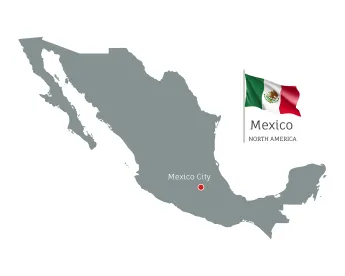Multinational companies operating in Mexico are subject to Mexican regulations regarding the use of foreign goods. Mexican customs law provides that, with the exception of goods for personal use, any person who possesses, transports, or handles foreign goods shall be prepared to demonstrate the goods’ legal importation. To evidence the legal importation, a company should be prepared to show (at any given time) any of the following: (i) fully compliant import documents under Mexican customs law, (ii) a registered Mexican taxpayer´s electronic invoice (known by its Spanish acronym, CFDI), or (iii) a sales note issued by the Ministry of Finance.
Thus, anyone who possesses, transports, or handles imported products — for example, machinery and equipment — must be prepared to furnish such documentation, including, when applicable, the goods’ trademark, model, serial number, and commercial description. Such proof must be provided upon request of the Mexican authorities and does not fall within a statute of limitations, which means relevant information should be maintained and made available for at least the useful lifespan of the product. This is an important consideration in the acquisition of any company with assets in Mexico — acquirers should ensure they also receive evidence of lawful importation in addition to the assets themselves.
Because Mexican federal or local authorities may knock at the company’s door and demand production of documents that confirm the legal importation and possession of foreign-made goods, companies with Mexican assets should be prepared to demonstrate compliance pursuant to the standards within 10 business days (a deadline that cannot be extended). Failure to comply may result in the issuance of an assessment requiring the payment of omitted importation duties, value-added tax (VAT), customs processing fees, any applicable antidumping fees, and other penalties. Adding to the severity of these risks, noncompliant goods may be appropriated by Mexican Federal Treasury if evidence of lawful importation and possession remains deficient.
To enable a quick response to such inquiries, owners, possessors, handlers, and transportation companies should keep all required documents in good order and in the same form in which they were submitted (usually in electronic format).
To ensure compliance, companies doing business in Mexico should audit their fixed assets on a periodic basis to assess the sufficiency of their records pursuant to Mexican customs law. These best practice audits may be accomplished by randomly choosing different fixed assets every month and checking to ensure the company has appropriate records of the customs paperwork. Audits also can confirm that the company is keeping all backup information required to support the original importation of the fixed asset, which can avoid costly delays given the strict compliance deadline to ensure compliance documents are readily available.






 />i
/>i
